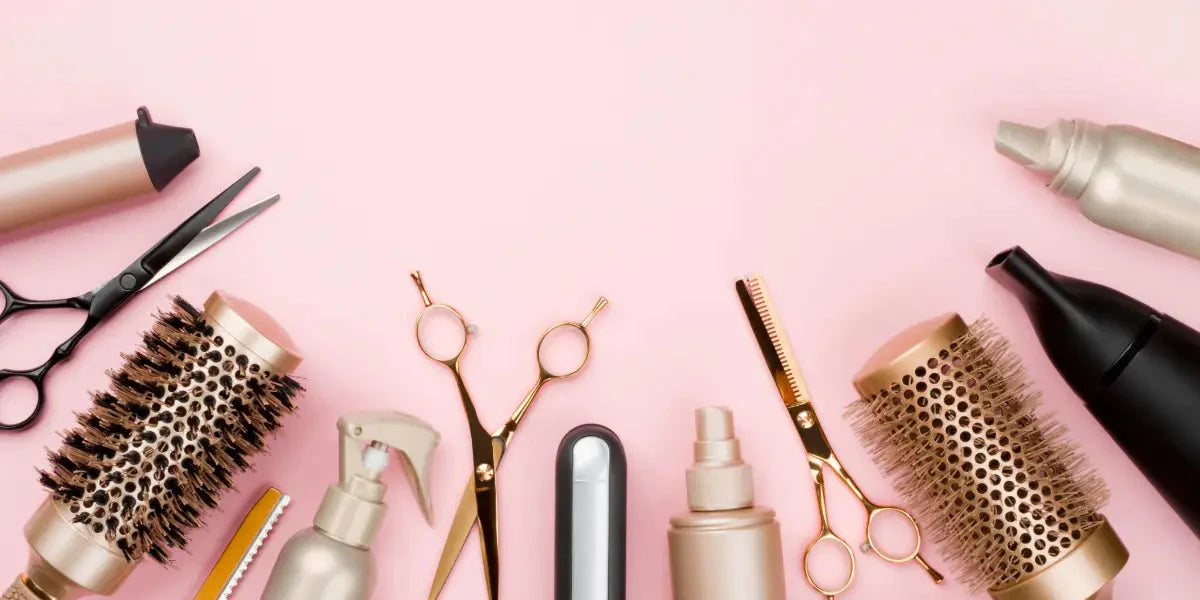Hair occupies a significant position in a woman's life, generally symbolizing femininity and glamour. However, it can happen that this much-desired hair abundance does not always live up to expectations in terms of volume and density. Why do we sometimes tend to lose our hair? And above all, what solutions exist to remedy this phenomenon?
What causes hair loss?
Normally, it is common to lose between 50 and 100 hairs per day. Therefore, hair loss is often considered abnormal when the daily count exceeds 100 hairs, or when certain areas of the scalp lose more hair than the rest of the scalp.
Hair loss can be categorized into two broad categories: diffuse hair loss (i.e. over the entire scalp), transient hair loss, and long-term hair loss.
Temporary hair loss
Transient diffuse hair loss, also known medically as telogen effluvium, is a common occurrence in women. This condition typically lasts for three to four months . Triggers vary and include:
- Hormonal imbalances such as stopping the pill and polycystic ovarian syndrome.
- Major psychological shocks.
- Childbirth. Hair loss then occurs about a month after birth (or even longer in breastfeeding women). It is usually caused by an iron deficiency during pregnancy.
- Miscarriage, abortion.
- Physical stress such as prolonged anesthesia, rapid weight loss or high fever.
- Certain hair practices such as coloring, straightening or tight hairstyles (ponytail, curlers, etc.).
- Trichotillomania, a behavior consisting of regularly pulling out a few hairs.
- Infectious causes such as ringworm or autoimmune diseases such as alopecia areata, leading to localized hair loss.
Although often anxiety-provoking, this phenomenon of diffuse hair loss is transient, followed by complete regrowth , not permanently impacting hair health. Once the underlying cause is treated, the hair follicles return to their normal growth cycle.
Long-term hair loss
Long-term diffuse hair loss unfortunately does not guarantee complete regrowth . Here are the main causes:
- Side effects of certain medications, chemotherapy being probably the best known.
- Psychological causes such as excessive stress or severe depressive state.
- Eating disorders such as zinc, magnesium or calcium deficiencies, or conversely an excess of vitamin A.
- Thyroid problems.
- Diabetes.
- Burns or radiation, particularly following radiotherapy.

Baldness
Also called "androgenetic alopecia", this condition manifests itself in men by a thinning and depigmentation of the hair, which can progress uniformly to a general thinning or affect more specifically one area. In women, baldness is also possible . It presents itself in a more diffuse manner, affecting the entire top of the skull while sometimes preserving the frontal hairline. It can occur at any age, with an increased frequency after menopause.
Prevalent among men of European origin, it affects between 20% and 40% of them at different stages of their lives. Although less common in women, it accounts for 80% of cases of lasting hair loss in this population. The causes of this condition include genetic predisposition, the influence of androgens, especially DHT derived from testosterone, as well as hormonal factors such as the use of oral contraceptives and menopause treatments. Stress and excess cholesterol are also risk factors in women.
How to prevent or limit hair loss?
Therapeutic approaches to hair loss are determined based on the identification of its cause, requiring a thorough analysis to implement measures adapted to each situation. It is often recommended to consult a dermatologist to obtain an accurate diagnosis and initiate treatment. For example, in the case of alopecia areata, corticosteroid therapy may be implemented. At the same time, preventive or mitigating measures may be considered.
The role of nutrition
Diet is the first area where you can have an impact. It is recommended to adopt a balanced diet , rich in fish, green vegetables and fruits. This type of diet provides essential nutrients such as vitamins, minerals and proteins, which promotes hair growth and prevents hair loss.
It is crucial to ensure an adequate intake of protein and iron , which are essential for the formation of keratin, the protein that makes up hair and nails. For hair growth and oxygenation of the roots, foods such as red meat, poultry, fish and seafood are therefore recommended. Sometimes, iron supplements may be prescribed, especially in cases of telogen effluvium.
Monitoring zinc intake is also important. Zinc is mainly found in foods such as oysters, seafood, red meat, seeds and fish. Egg yolks and lentils, which are rich in sulfur amino acids, iron, zinc and B vitamins, are beneficial for hair health.
Relying on essential fatty acids , such as omega-3 and omega-6 contained in rapeseed, walnut or soybean oils, is also recommended to maintain good scalp health. Finally, in case of excess vitamin A, reducing its consumption can help reduce hair loss.
The importance of a good hair routine
Taking care of your hair on a daily basis can also help reduce hair loss.
First of all, it is best to wash your hair with mild shampoos , no more than twice a week (frequent washing tends to cause hair loss), using a minimum amount of product. It is also advisable to avoid baby shampoos, which can leave hair greasy.
Perms, aggressive colorings and straightening should also be avoided . Brushing should be done with a soft brush, avoiding pulling on the roots (it is recommended to squeeze them in the hand to prevent excessive traction on the hair base). It is essential that brushing is not aggressive . Hairstyles that put pressure on the hair follicle, such as buns or braids, should also be avoided.
It can also be beneficial to incorporate herbal food supplements into your routine. Some are specifically designed to strengthen hair health by reducing hair fragility while stimulating hair growth.
Stress management
Since excessive stress can contribute to hair loss, adopting stress management techniques can be beneficial. Methods such as meditation, yoga, regular physical activity , or relaxation can help reduce stress levels and, therefore, reduce hair loss.
Natural herbal treatments can also significantly reduce anxiety and stress.
In short, hair loss, whether temporary or long-term, requires a comprehensive approach. From dermatological consultation to stress management, a balanced diet and an adapted hair routine, each aspect must be considered. To reinforce these measures, the integration of food supplements can also be considered. By understanding the causes and adopting appropriate lifestyle habits, it is generally possible to reduce hair loss and promote hair growth, thus preserving the beauty and vitality of the hair.
References :
Vidal. (Updated December 13, 2019). Hair loss.
Wendy S. Levinbook. (Updated October 2022). Alopecia (hair loss).
Dr. J. Burgos, your natural health. (Updated October 24, 2022). Natural treatment for hair loss.






